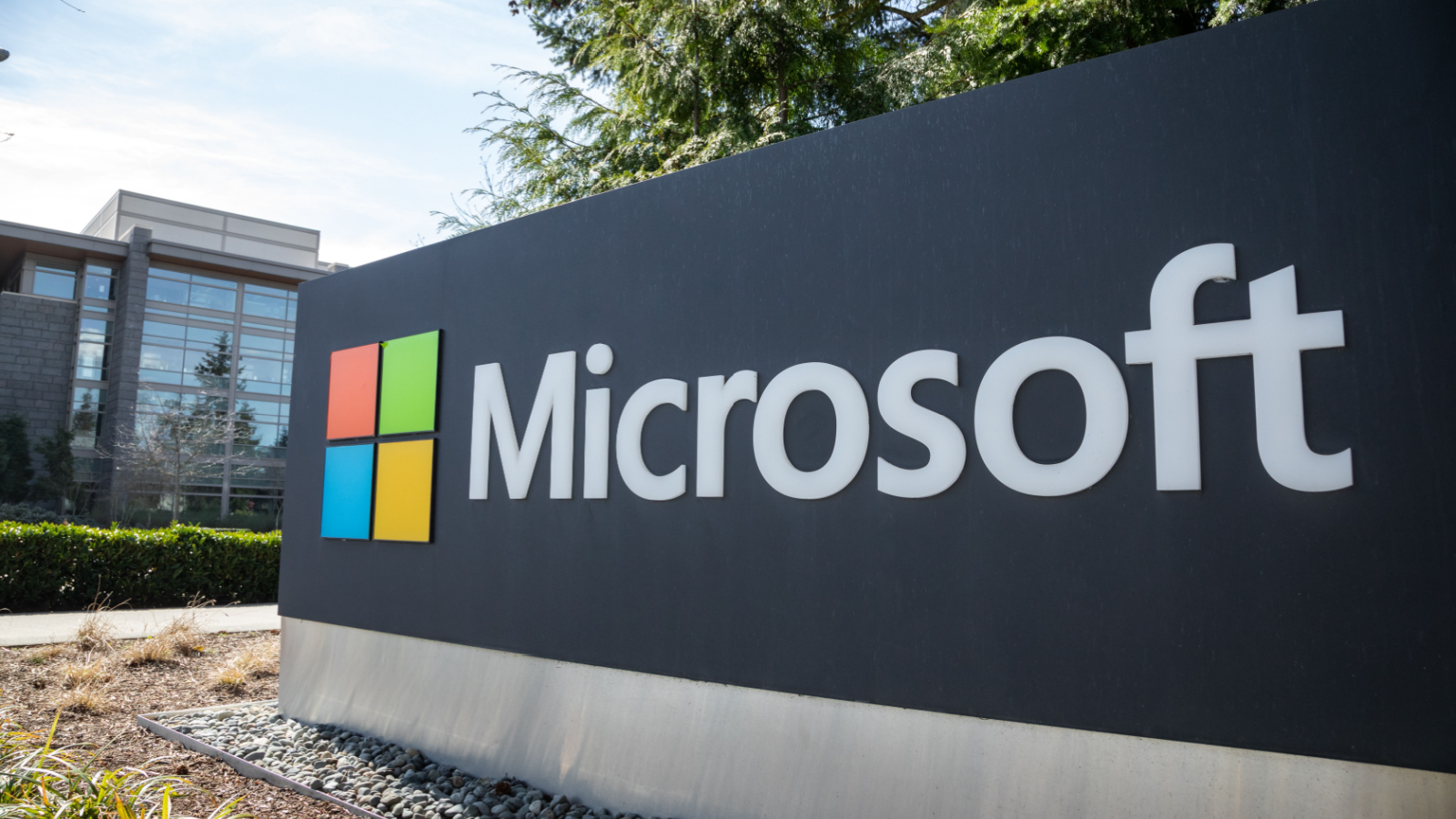MSFT Analysis: ‘Blue Screens Everywhere’ Isn’t a Reason to Sell Microsoft Stock

There’s a good-news, bad-news situation happening now with Microsoft (NASDAQ:MSFT). It’s getting a lot of coverage in the financial press, but it’s not positive coverage. Still, long-term shareholders should adopt a “This, too, shall pass” perspective and not panic-sell Microsoft stock.
Microsoft isn’t to blame for the negative news, unless you fault them for relying too much on one cybersecurity company. Microsoft should address that. Microsoft will endure press scrutiny in the long run.
A ‘Victory Lap’… but Not for Microsoft
Not to be overly cynical, but the financial press seemed to be absolutely gleeful when Crowdstrike’s (NASDAQ:CRWD) glitch-riddled software update caused an international tech outage. Here’s a small sampling of the dramatic headlines:
- Bloomberg: “From ATMs to Flights, Epic IT Crash Leaves Trail of Chaos“
- CNN: “3,000 U.S. flights are canceled as a global computer outage wreaks havoc on businesses, 911 systems and government agencies”
- The Telegraph: “Holidays in chaos after global IT meltdown”
- South China Morning Post: “CrowdStrike-Microsoft outage: Chinese cybersecurity firms take victory lap“
The South China Morning Post‘s headline is somewhat misleading, as Microsoft didn’t cause the “outage.” A more precise headline would have clarified that some of Microsoft’s Windows-powered personal computers crashed.
Granted, some China-based cybersecurity firms, such as 360 Security Technology, will relish this unfortunate incident.
Yet, levelheaded investors will certainly understand that Microsoft is a tech-sector behemoth that has withstood much more challenging situations than this.
Not a ‘Black Eye’ for Microsoft
The U.S. and China aren’t exactly on stellar terms at the moment, especially when it comes to trade and technology. So, don’t be surprised if China’s press outlets have a field day with the CrowdStrike-caused tech outage.
To be fair, this is certainly problematic for CrowdStrike. Wedbush analyst Daniel Ives declared, “This is clearly a major black eye for CrowdStrike,” and this is a reasonable assessment of the situation.
Is it a “major black eye” for Microsoft, though? Let’s not get carried away here. The Wall Street Journal published a piece with the scary-sounding headline, “Blue Screens Everywhere Are Latest Tech Woe for Microsoft.”
This refers to crashing Windows operating systems showing users the “blue screen of death.” But before you freak out and sell your Microsoft stock, let’s look at the actual facts.
According to a Microsoft blog post, “We currently estimate that CrowdStrike’s update affected 8.5 million Windows devices, or less than one percent of all Windows machines.”
The Wall Street Journal acknowledged this, but you wouldn’t know it if you only read the article’s frightening headline.
Thus, even though Microsoft announced a resolution to the tech outage, the financial press won’t always offer balanced, sensible coverage. It’s up to you, then, to stay calm and stay in the trade.
Microsoft Stock: Choose Calm Over Calamity
Ives is probably right; the global tech outage is, indeed, a “major black eye” for CrowdStrike. This incident also affects Microsoft, but not nearly to the same extent.
Microsoft is addressing the issue, which reportedly affected “less than one percent of all Windows machines.”
Therefore, if you’re in it for the long haul, feel free to maintain your Microsoft stock position and remember that today’s dramatic headlines are typically fleeting and nonfatal.
On the date of publication, Louis Navellier had a long position in MSFT and CRWD. Louis Navellier did not have (either directly or indirectly) any other positions in the securities mentioned in this article.
The InvestorPlace Research Staff member primarily responsible for this article did not hold (either directly or indirectly) any positions in the securities mentioned in this article.
On the date of publication, the responsible editor did not have (either directly or indirectly) and positions in the securities mentioned in this article.









